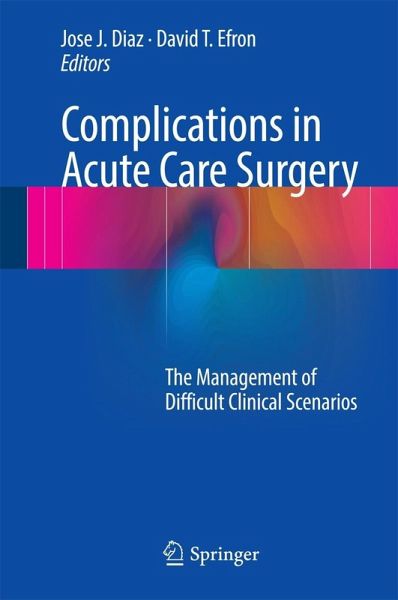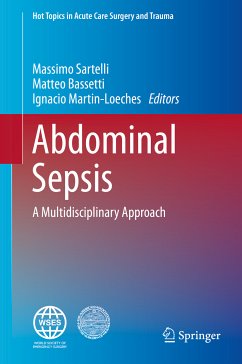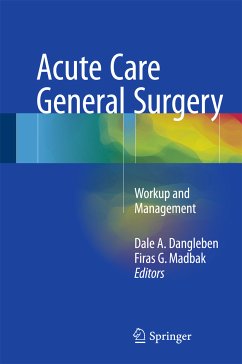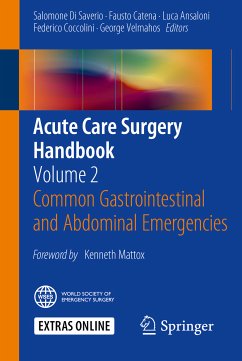
Complications in Acute Care Surgery (eBook, PDF)
The Management of Difficult Clinical Scenarios
Redaktion: Diaz, Jose J.; Efron, David T.
Versandkostenfrei!
Sofort per Download lieferbar
80,95 €
inkl. MwSt.
Weitere Ausgaben:

PAYBACK Punkte
40 °P sammeln!
This text provides the reader a starting point for the most difficult and uncommon complications in acute care surgery. It is designed to provide options to that ubiquitous intra-operative or bedside question "Well, now what do we do with this?" The topics have been chosen for the extreme difficulty of management and the surprising regularity that they present and the lack of large volume of accumulated evidence, where expert experience remains vital. The volume editors present a list of clinical scenario's, intra-operative findings, and ethical circumstances that few general surgeons in their...
This text provides the reader a starting point for the most difficult and uncommon complications in acute care surgery. It is designed to provide options to that ubiquitous intra-operative or bedside question "Well, now what do we do with this?" The topics have been chosen for the extreme difficulty of management and the surprising regularity that they present and the lack of large volume of accumulated evidence, where expert experience remains vital. The volume editors present a list of clinical scenario's, intra-operative findings, and ethical circumstances that few general surgeons in their career will see in their career. The authors represent the most prolific surgeons in practice today. They present how they wound manage these challenging acute care surgery problems based on their vast clinical experience. Here, these surgeons share their personal experience with the most difficult cases. The text is divided into 4 parts. The first part is "Global Patient Issues" when asingular surgical problem presents itself in a very complicated patient with an extensive list of unstable co-morbid diseases. The second part is "Specific Disease Issues". This is a surgical text and as such each issue is an unexpected intra-operative finding and expert management. The third part is "Post-Operative Issues" and as any seasoned surgeon knows, is the most critical part of managing a complicated surgical case. The last section is "Challenging Ethical Scenarios." The text is designed to provide the surgeon in training or the seasoned general surgeon unique clinical or operative options for the care of their patients.
Dieser Download kann aus rechtlichen Gründen nur mit Rechnungsadresse in A, B, BG, CY, CZ, D, DK, EW, E, FIN, F, GR, HR, H, IRL, I, LT, L, LR, M, NL, PL, P, R, S, SLO, SK ausgeliefert werden.












